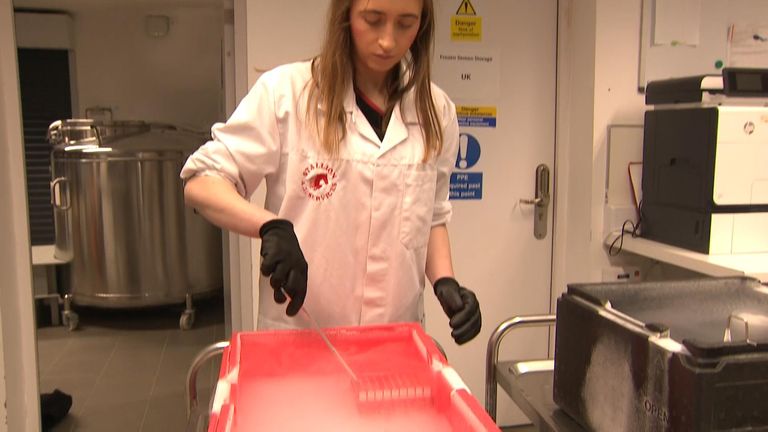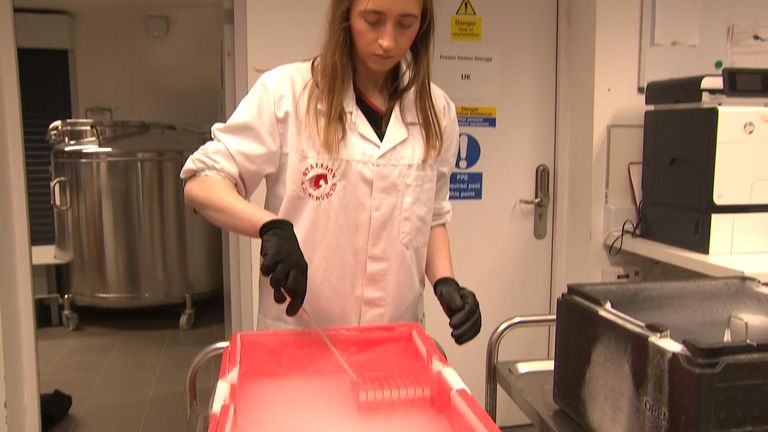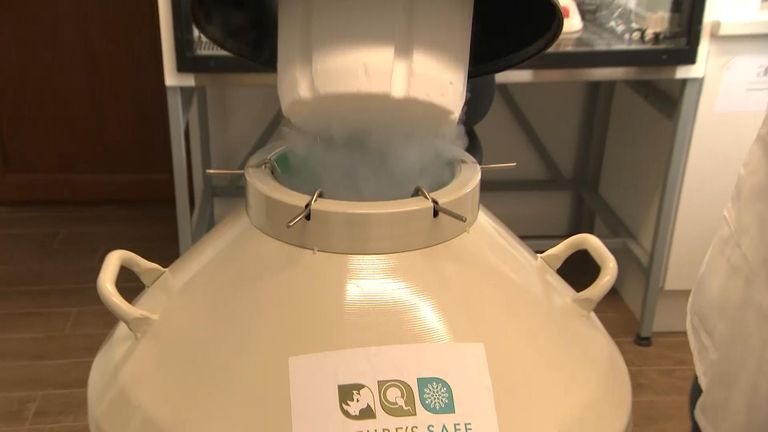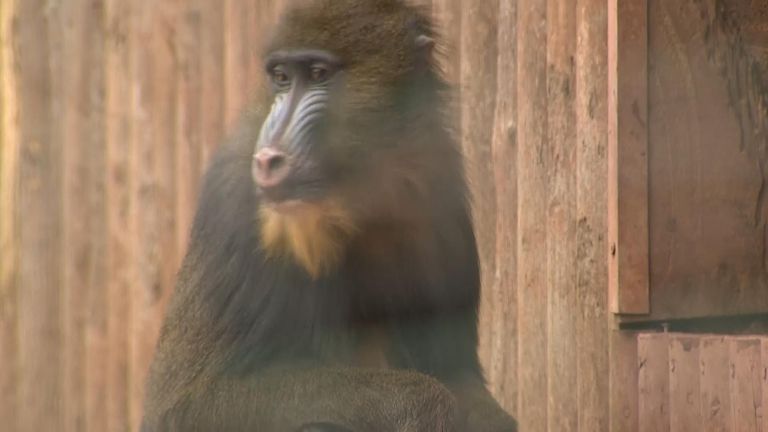
A zoo in Devon has begun cryogenically freezing genetic samples of some of its most endangered animals in a bid to save them from extinction.
Paignton Zoo has teamed up scientific charity Nature’s Safe, which has so far frozen samples from 82 species at its laboratories in Shropshire.
The zoo provides samples from animals that have died or been neutered.
“It’s a really exciting opportunity and it really represents the diversity of roles that modern zoos, good zoos, can do,” said Steve Nash from Wild Planet Trust, which runs the zoo.
“For a lot of species, time is running out. We work tirelessly to conserve animals all the time – it’s what we do. But there are a lot of species for whom the challenges they face in the wild are particularly prescient. This acts as a safeguard for these species that we can conserve their genetic material for future use.”
In Shropshire, 230 miles north, the tissue samples are frozen at -196C (-320F).
The operation is the brainchild of co-founder of Nature’s Safe, Tullis Matson.
His organisation initially specialised in freezing the sperm of prized horses – which continues – but has now expanded to preserving the DNA and genetic samples of endangered animals.
“What we can do is freeze these samples down in a living state,” Mr Matson said.
“We can bring these samples back to life in 10, 20, 30, 1,000 years’ time and hopefully stop the extinction process and slow down the diversity loss in the planet when these species are maybe on the brink of extinction,” he told Sky News.
“If we’ve got that unique DNA, we can use that in many different attributes. In theory, in years to come, we can turn that skin sample into a sperm and an egg, which is quite incredible. But the science is moving at such a rate, if we don’t freeze it now, we’ve lost those species forever.”
With about 40,000 species facing extinction, the charity says it is a race against time to preserve the genetic data: “We’re at the cliff edge of losing so many species on a daily basis, we have nowhere else to go, so we’ve got to do it here and now. Whatever it takes on a technology side, we have to use those tools to be able to stop them from disappearing.”
Once the tissues are thawed, the living cells can be used in cell culture or in assisted reproductive technologies to create pregnancies.
Nature’s Safe is one of Europe’s first living biobanks dedicated to preserving endangered species.
The technology to cryo-freeze animal tissues has been used for a number of years at San Diego Zoo, which says it has the largest sample collection in the world.








More Stories
5 Reasons Why Everyone Should Look Forward to Save Earth Mission’s Takeoff Event
Save Earth Mission’s Takeoff Event Countdown Starts: Get Ready to Witness History
The Save Earth Mission: A Global Movement Towards a Sustainable Future